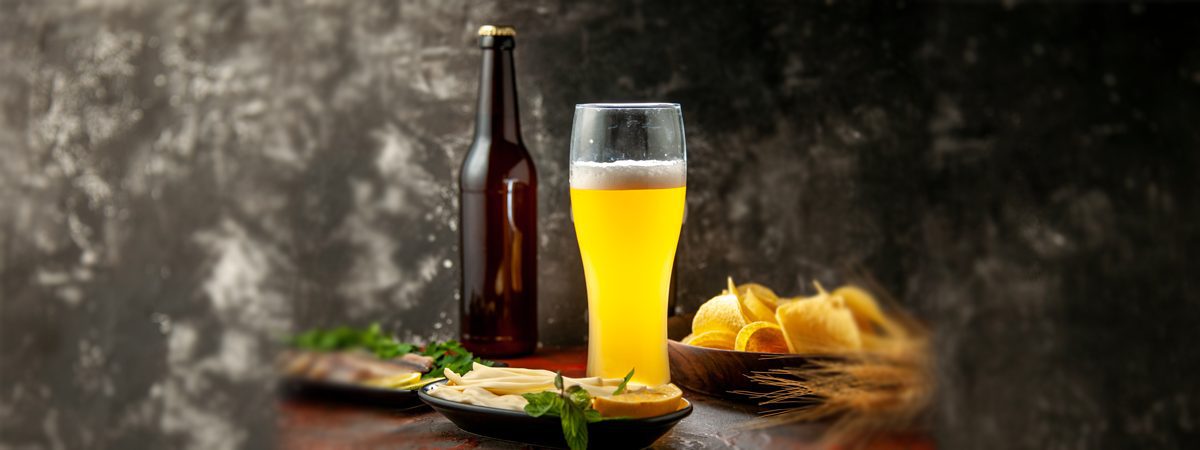Beer, Wine or Whiskey – Which of These Are Okay for People With Diabetes?

Like having a beer, glass of wine or maybe some whiskey on the rocks now and then? But then you start worrying about your blood sugar and how it could worsen your diabetes, right?
Well, we have the definitive answer to this question. Please note that we do not endorse alcohol consumption.
First up, let’s understand
How alcohol affects your body and blood sugar levels?
The most significant risk of drinking too much alcohol (more than two drinks per sitting1) is hypoglycemia (or extremely low blood sugar levels) which can be very dangerous and even fatal in some cases.
And, with a few drinks in you, you might not see some common symptoms of hypoglycemia such as difficulty speaking, sweating, trembling, etc. This is common seen in people who are on insulin or diabetes medication.
Alcohol directly enters your bloodstream and is converted to fat directly instead of glucose – this may cause you to crave sugary and carb-rich foods to compensate for the low glucose levels.
It also affects your brain and moves it into starvation mode, making you want to overeat.
Should people with diabetes can drink beer or whiskey? Here are some facts about what happens in your body when you drink, straight from our experts.
Which alcohol is good for diabetes?
There is a standard measure to gauge the kind of alcohol you can drink:
The rule of thumb is – lower calorie and lower carb spirits are your best choice. And, this includes light beers, wines, and hard liquor, either on the rocks or with a splash of water.
To know your chances of Diabetes reversal, take the Diabetes Reversal TestDiabetes Reversal
Calculator
Cocktails are best avoided.
For easy reference, here’s a table you can use.
| Type of Alcohol | Carbs | Calories |
| Beer | ||
| 350ml (1 small can approx.) | 13g | 150 |
| 350ml light beer (1 small can approx.) | 6g | 100 |
| Wine | ||
| 120ml red wine (1 small wine glass approx.) | 4g | 80 |
| 120ml of white wine (1 small wine glass approx.) | 4g | 80 |
| 60ml of port wine (half a small glass) | 7g | 90 |
| Distilled Spirit | ||
| 30 to 40 ml distilled spirits (Gin, Rum, Vodka, Whiskey, Scotch, dry Brandy, Cognac) (1 peg approx ~ 30 ml) | 0g | 100 |
| Cocktails | ||
| 120ml Margarita | 29g | 205 |
| 70ml Martini | Trace | 156 |
| 130ml Pina Colada | 32g | 245 |
| 150ml Bloody Mary | 5g | 116 |
Reference carb amounts from Diabetes.co.uk
In the above table, the lower the carb and calorie content, the better the drink is for you.
However, while these serve as good rules to go by, you can get more precise guidance by knowing how your blood sugar actually responds to alcohol.
And that’s where PGR or Personalized Glycemic Response comes in.
What is Personalized Glycemic Response?
As the name suggests, PGR is a personalized understanding of how your body and blood sugar reacts to different foods and drinks.
Reduced diabetes medications in 3 months


6.8%
Happy members
EMI
Guarantee
4.8/5
Diabetes Prime Program
So, for instance, if you drink a glass of wine and your friend drank the same amount as you, there would be a difference in the way your body breaks down the wine and releases sugars – affecting your blood sugar levels differently than your friend’s body.
That’s why, if you love to have a glass of wine or whiskey on the rocks, now and then, the PGR of your favourite drink will show whether you should stick with what you love or change things up.
How do PGR and Diabefly help you drink what you love while helping you control your blood sugars better?
The foremost reason PGR works so well in helping you manage your blood sugar levels better is that it helps you identify precisely what’s good for you and what isn’t. There is no need to follow the general one-size-fits-all advice anymore.
The PGR report also tells you what mixers and snacks you can eat when you’re enjoying an alcoholic drink.
So, you’re all set for a good, fun night that you can enjoy to the fullest.
A word of caution:
How to Safely Consume Alcohol when you have diabetes?
Here are some tips to keep in mind when you’re having a drink:
- Avoid drinking alcohol if your blood sugars are not in control. This means that your HbA1C values are between 6.5 to 7% or lower. Or if your average blood sugars are between 140 to 154 mg/dL.
- Limit yourself to one drink per day (for women) and two drinks per day (for men).
- Pick drinks that are suitable for you to drink, based on your PGR report. Once you enrol for the Diabefly Pro program, the coach will recommend what’s best for you.
- If your drinking habits change (if you’re drinking more than your usual amount or are drinking a type of alcohol that’s not recommended for you), inform your treating physician.
- Always eat snacks or a meal before you drink to help prevent hypoglycemia or low blood sugar levels.
- Avoid using mixers that are high in sugar (such as aerated drinks, packaged juices, etc.) and cocktails that are made with sugary juices.
- Always test your blood sugar levels before going to bed, after you’ve had a drink, as they tend to drop further when you sleep. Of course, if it’s low, eat a healthy snack.
- Never substitute a drink for a meal.
Diabefly is a program that is personalized to you. It takes into account all factors that affect your blood sugar levels and can help you navigate the maze that is diabetes and blood sugar management.
Not only is it personalized to your needs and lifestyle, but the program gives you scientific, evidence-based guidance in all aspects of your life that affect blood sugar.
In addition, you’ll have access to a coach, expert physiotherapist and psychologist for a holistic form of diabetes treatment and management.
Want to know more? Read all the details of the Diabefly Pro Diabetes Care program or give us a call at 022 48971077 (Ext 1)
This blog provides general information for educational and informational purposes only and shouldn't be seen as professional advice.














